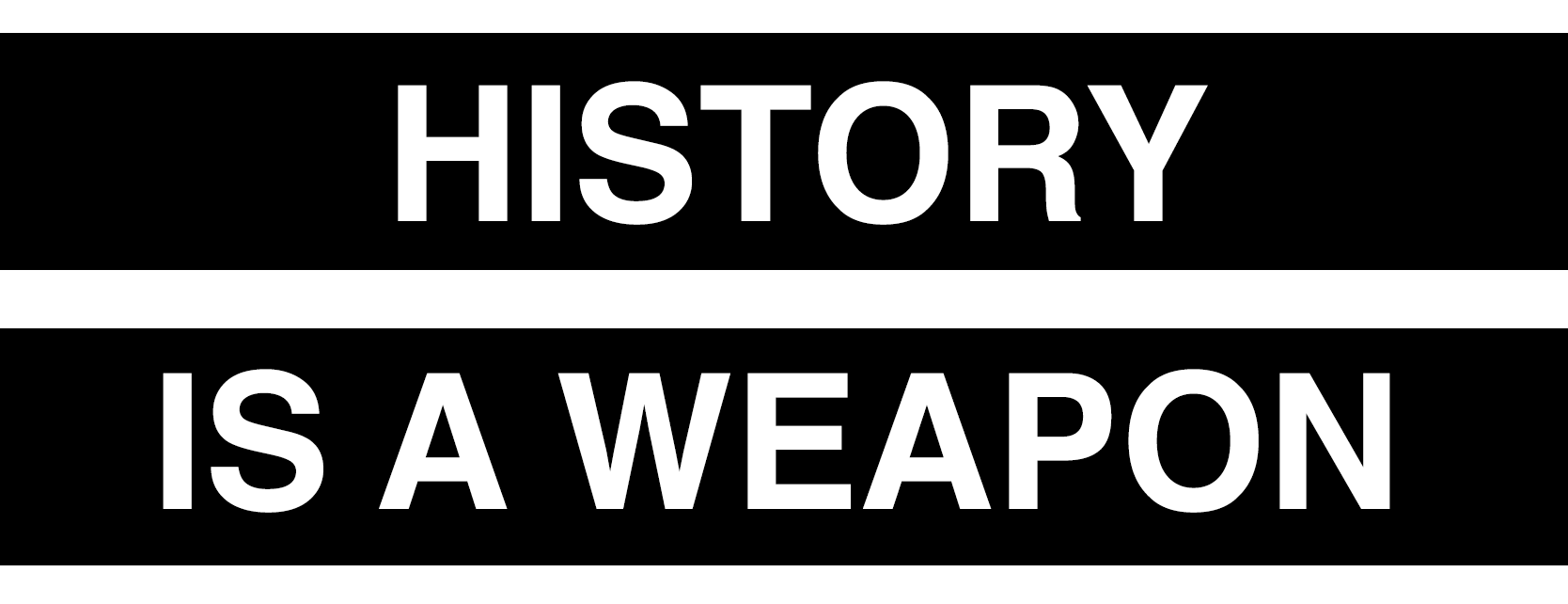“History is a Weapon: The Vote” is the second installment in a long-form essay written in response to the election by Devonaire Ortiz. See the introduction: Never: (For I Can Write about Nothing Else).

“I think that the saddest part of it all is, I don’t know which part of me they’ll kill first: the Muslim, the woman, the Latina, or the lesbian or whatever.”
– A student reflecting on the election the day after
As I marched with my peers around Wesleyan University’s campus and Main Street in Middletown, Connecticut on the Friday after the election, one chant stood out above all: “Tell me what democracy looks like,” chanted roughly half the crowd; “this is what democracy looks like,” the other half responded. So begins the error of mainstream liberalism and its presence in protest.
The democracy that this chant celebrates does not exist in an idealistic vacuum, but in historical context. It is the one laid out in the United States Constitution, and it is the one in whose name countless acts of oppression have been justified. Ostensibly, my peers were referring to the fact that they were exercising the right to assembly conferred to them by the democratic ideals enshrined in the constitution. However, by exalting it as they did, and as liberals often do, they shielded it from critique. This is the magic of well-orchestrated oppression: it can disempower its subjects and convince them that it is lifting them up in one sinister motion.
That democracy has never served all equally—since its construction, the older, moneyed, white man has been disproportionately protected by it. Meanwhile, its first iteration granted three-fifths personhood to slaves, guiltlessly referred to as “all other Persons.”
The Vote
It is true that the constitution’s main redeeming quality is that it can change—it must. Today’s democracy is not serving us well. In fact, today’s democracy is responsible for the president-elect’s victory; the lawful degrees of separation it allows between United States citizens** and choosing who represents them as President are one too many.
For one, that the allocation of Electoral College votes makes it possible for a candidate to win a majority of popular votes and still lose an election is antithetical to the democratic ideal of majority rule. This apparent contradiction, however, was no error. Not only did slavery dehumanize Black people, but the partial personhood that slaves were granted worked solely to further the aims of their masters. For every three-fifths of a person added to a state’s population, their proportional representation in the Electoral College increased accordingly. The founders established it with this in mind.
In a sentence, the Electoral College was designed to preserve slavery’s oppressive force; today, it preserves racism’s. For these reasons alone, it must go.
The democracy that my peers chanted for is to blame for this. In effect, the Electoral College and an unearned victory are what democracy looks like. The president-elect’s victory can be pointed to as proof that the United States government is an institution preserving itself and its original aim to the detriment of the majority.
Fault can also be found in the permanent disenfranchisement of convicted felons in place in ten states, some of them major battleground states including Florida, Iowa, and Virginia. Florida, an oft-contested battleground state with twenty-nine electoral votes, has the highest disenfranchisement rate in the nation, with 10.4 percent of its adult population unable to vote due to a felony conviction. Perhaps more tellingly, 21.3 percent of Florida’s Black population, around 725,000 people, cannot vote. Given that Hillary Clinton’s support among Black voters was 88 percent overall and the president-elect’s margin of victory was a mere 120,000 votes in Florida, it is safe to say that without felony disenfranchisement, she would have stood a much greater chance at winning there. This is just one case of voter suppression at work.
In 2013, the Supreme Court gutted Section 5 of the Voting Rights Act (VRA), which required that states with a history of voter discrimination get preclearance with the Justice Department before changing any voting rules. Though the court did not strike it down outright, the VRA formula for determining which states the provision would apply to was ruled unconstitutional, effectively making it unenforceable.
Fourteen states implemented new voting restrictions in time for the 2016 election. Nine of them were on the Justice Department’s watch list for jurisdictions with a history of voter discrimination. These restrictions varied, but generally included provisions requiring photo identification to vote, early voting cuts, earlier registration deadlines, and cuts in voter registration drives. Of the fourteen states that passed new voting restriction laws, twelve of them had Republican-controlled legislatures. Three of them, Virginia, Ohio, and Wisconsin, were crucial swing states, and the president-elect won two of them.
All of this goes to say that in addition to the fact that the president-elect ran a campaign that boosted the self-esteem of white supremacists nationwide, his party has been hard at work passing laws making it harder to vote in many of the states that had the highest Black and Hispanic turnouts in 2008. The Supreme Court’s gutting of Section 5 of the VRA did not help. The VRA itself was not passed until 1965, fulfilling the promise of the 15th Amendment 95 years after it was ratified. Fifty years later, it has been dealt a fatal blow.
Voter suppression helps to partially explain how the president-elect won the election. Still, now is a good time to remind you that he won 58 percent of the white vote. He won a majority of the white vote in every traditionally defined gender, wealth, and education demographic except for that of the college-educated white woman, 51 percent of whom voted for Clinton. This explains most of how he won, in yet another example of what democracy looks like.
**Note that notions and conferral of citizenship are historically rooted in the exclusion of many and the denial of sovereignty to Indigenous people.
-
Sir Nigel Eton-Hogg